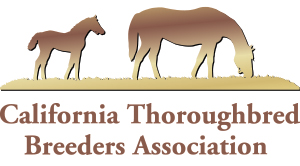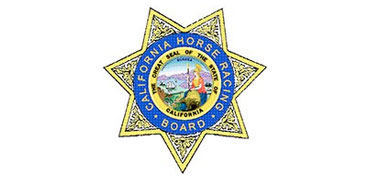From CHRB
SACRAMENTO, Calif. (Apr. 22, 2022) — The California Horse Racing Board conducted a public meeting in Sacramento at Cal Expo on Thursday, April 21, 2022. This was the first in-person meeting of the Board since February 20, 2020. All Board meetings for the last two years were conducted via teleconference due to the pandemic. Chairman Gregory Ferraro chaired the meeting, joined by Vice Chair Oscar Gonzales and Commissioners Dennis Alfieri, Damascus Castellanos, Brenda Washington Davis, Thomas Hudnut, and Wendy Mitchell.
The audio of this entire Board meeting is available on the CHRB Website (www.chrb.ca.gov) under the Webcast link. In brief:
• Executive Director Scott Chaney gave a comprehensive report on the status of HISA (Horseracing Integrity and Safety Act), which is shifting much safety and medication control oversight from states to the federal government. The first shift involving racing safety will occur July 1. Procedurally, each state regulatory body must either opt in or opt out of collecting and remitting fees for the program. If a state racing commission opts out or fails to take action, the responsibility to collect and remit fees falls to the horsemen and racing associations in that state. Commissioners at the meeting Thursday indicated that the best way for the CHRB to meet its responsibility to regulate horse racing in California would be to opt in rather than delegate any such responsibility to stakeholders. The Board unanimously voted to opt in. This entails a payment of $1.4 million to the HISA Authority for calendar year 2022 expenses.
Conditioned on proposed statutory authorization, the payment will be split equally between thoroughbred horsemen (purse revenue) and thoroughbred racetracks (commissions) from their shares of Advance Deposit Wagering (ADW) revenue. This will not affect bettors. Chaney said the safety regulations largely mirror the CHRB’s existing regulations with the exceptions of shoeing and use of the riding crop. He said the shoeing regulations will be stricter than California’s regulations, while the crop
regulations will be less so. Accordingly, as of July 1, thoroughbred riders in California will no longer be prohibited from using the crop with an overhand motion. Quarter-horse racing will not be regulated by HISA, so those riders will continue to be governed by the more restrictive CHRB regulation (i.e. no overhand use).
• Doctors at the University of California, Davis, gave a comprehensive presentation on sudden deaths in horse racing. Dr. Francisco Uzal, an internationally recognized expert on the subject, said the precise cause of death is never conclusively determined in approximately half the cases worldwide, though much of the time it is presumed to be cardio failure. Dr. Sue Stover said there have been indications that many sudden death victims had recently been exercising at shorter distances than usual, suggesting that their handlers sensed something was amiss with their horses, so had cut back on their training. This is a subject that can be discussed with trainers during California’s mandatory necropsy review. Dr. Carrie Finno reported that advancements in whole-genome sequencing could eventually determine whether there is a genetic factor in sudden deaths. And Dr. Jessica Morgan offered that readily available technology, such as programs on cell phones, can be used to recognize distress in exercising horses.
• The Board authorized stakeholders to continue to contribute a share of their ADW revenue for marketing purposes, specifically player rewards, horse recruitment, and publicizing the industry’s efforts to care for horses.
• Public comments made during the meeting can be accessed through the meeting audio archive on the CHRB website.


